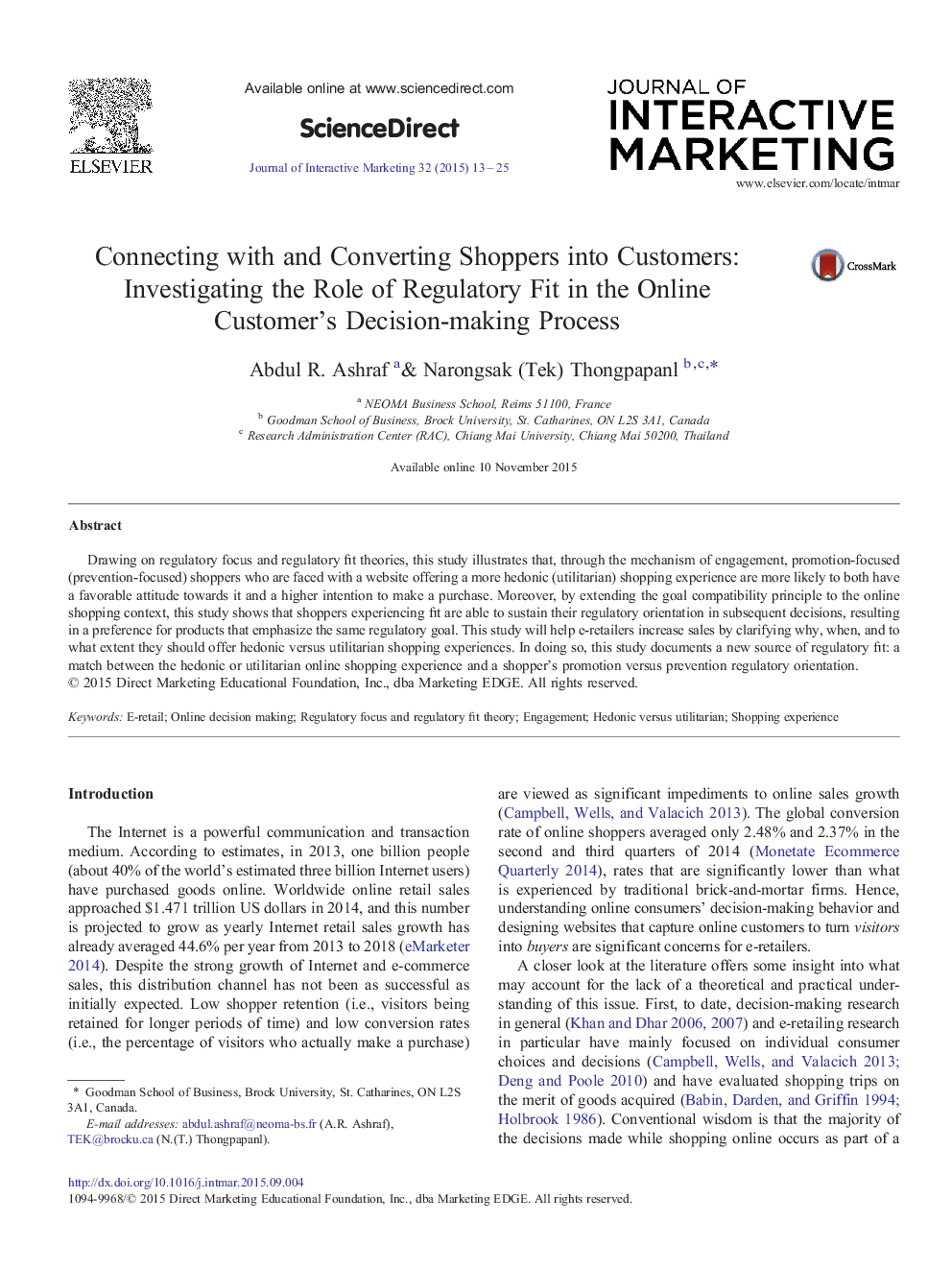| Article ID | Journal | Published Year | Pages | File Type |
|---|---|---|---|---|
| 885987 | Journal of Interactive Marketing | 2015 | 13 Pages |
•Through engagement, promotion-focused (prevention-focused) individuals favor a more hedonic (utilitarian) website.•A HH/HU website yields a lower attitude and purchase intention than a HH/LU website for promotion-focused individuals.•A HH/HU website yields a lower attitude and purchase intention than a LH/HU website for prevention-focused individuals.•Regulatory-fit shoppers can sustain their orientation, resulting in a product preference with the same regulatory goal.
Drawing on regulatory focus and regulatory fit theories, this study illustrates that, through the mechanism of engagement, promotion-focused (prevention-focused) shoppers who are faced with a website offering a more hedonic (utilitarian) shopping experience are more likely to both have a favorable attitude towards it and a higher intention to make a purchase. Moreover, by extending the goal compatibility principle to the online shopping context, this study shows that shoppers experiencing fit are able to sustain their regulatory orientation in subsequent decisions, resulting in a preference for products that emphasize the same regulatory goal. This study will help e-retailers increase sales by clarifying why, when, and to what extent they should offer hedonic versus utilitarian shopping experiences. In doing so, this study documents a new source of regulatory fit: a match between the hedonic or utilitarian online shopping experience and a shopper's promotion versus prevention regulatory orientation.
